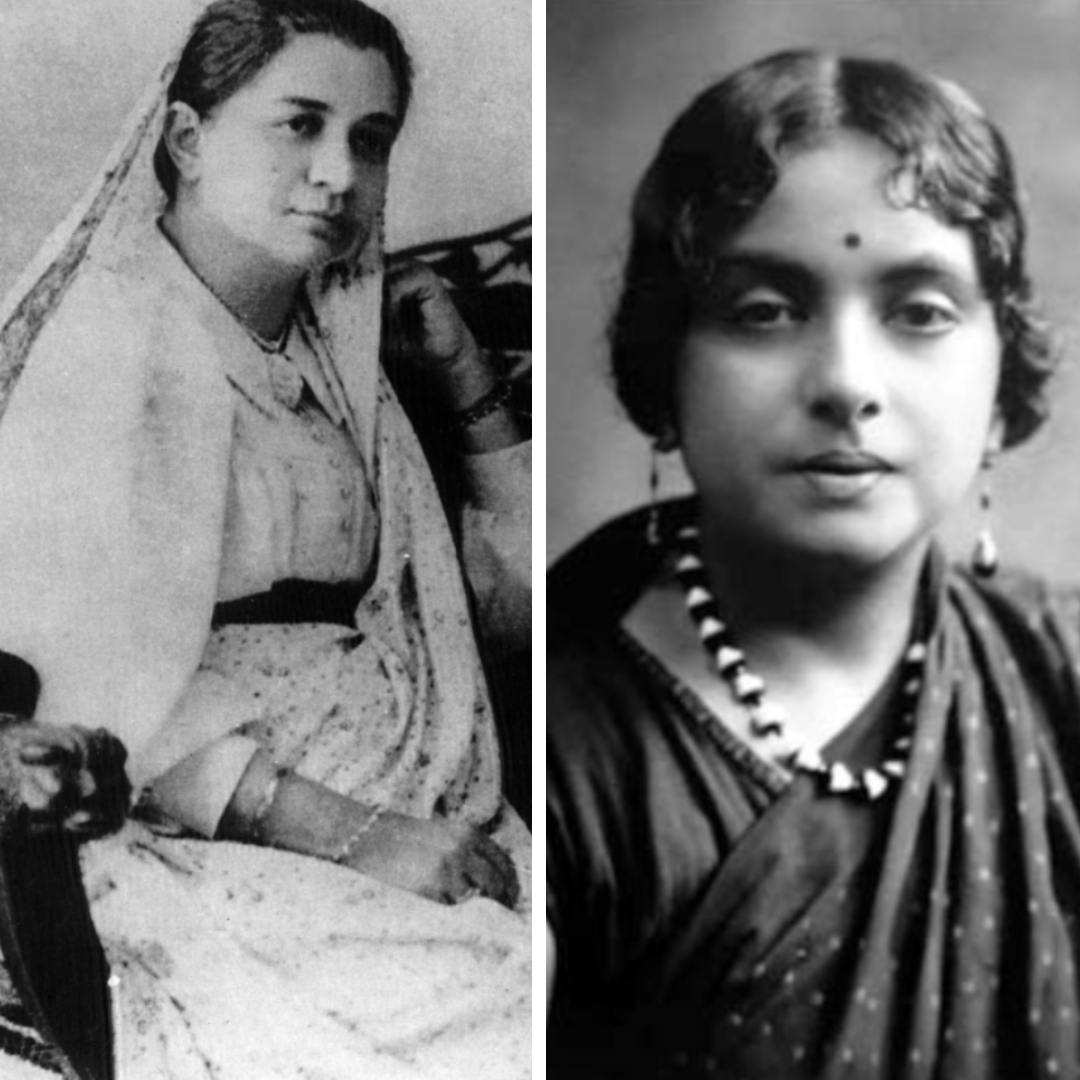
Image Credits: Wikipedia, News Karnataka
Lost In Pages Of History: 3 Unsung Indian Women Freedom Fighters Who Fought For Independence
Writer: Prattusa Mallik
A student of Journalism and Audio-Visual Communication, interested in words and silences alike, I aim to bring the narratives of the periphery to the centre, one story at a time. When not working, I'm usually caught reading, thinking, writing, watching Friends, or stargazing.
India, 15 Aug 2021 10:39 AM GMT
Editor : Ankita Singh |
A literature lover who likes delving deeper into a wide range of societal issues and expresses her opinions about the same. Keeps looking for best-read recommendations while enjoying her coffee and tea.
Creatives : Prattusa Mallik
A student of Journalism and Audio-Visual Communication, interested in words and silences alike, I aim to bring the narratives of the periphery to the centre, one story at a time. When not working, I'm usually caught reading, thinking, writing, watching Friends, or stargazing.
It is needless to say that women's participation in the Indian Freedom Movement is something without which independence could have been a distant dream.
"I know the capabilities of our womanhood well. I can, therefore, say with certainty that there is no task which our women cannot undertake and no sacrifice and suffering which our women cannot undergo, " said Netaji Subhash Chandra Bose.
In his speech addressing the women's section of the Indian Independence League in Singapore in 1943, Netaji Subhash Chandra Bose welcomed women's participation in the Indian Freedom Movement.
It is not like we are unaware of our women leaders and their role in the freedom struggle. But unfortunately, there are also hundreds of patriots whose names have gotten lost from the popular narrative. As India celebrates its 75th Independence Day, let us take a look into the lives and works of three such women.
Bhikaji Cama: The First OneTo Unfurl Indian Flag On Foreign Land
The first person to hoist the Indian flag abroad, Bhikaji Cama was one of the most influential freedom fighters, having active contacts with leaders from Egypt, France, Iran, and Russia. She dedicated herself to being a freedom fighter, even if it meant sacrificing her comfort sometimes.
Bhikaji was born in 1861 into an affluent Parsi family and married Rustomji Cama in 1885, a lawyer who was demonstratively pro-British. Thus, his ideological differences with the passionate nationalist Bhikaji resulted in an unhappy marriage and led her to spend time mostly in social work.
Bhikaji caught plague while volunteering during the 1896 plague in Bombay. She recovered but was in poor health and hence went to Europe for recovery in 1902.
During her stay, she met several prominent Indian nationalists like Dadabhai Naoroji, Lala Har Dayal, and Shyamji Krishnavarma and addressed several public meetings in London's Hyde Park. She eventually relocated to Paris and co-founded the Paris Indian Society. She also wrote, published, and distributed revolutionary literature.
On 22nd August 1907, Bhikaji became the first to hoist the Indian flag (which she had co-designed) on foreign soil in Stuttgart, Germany. There, she spoke about the disastrous effects of famine in India and demanded autonomy from Britain.
After working relentlessly despite declining health, Bhikaji finally returned to India at 74 years of age and breathed her last in 1936. She endowed most of her possessions to Avabai Petit Orphanage for girls.
Kamaladevi Chattopadhyay: First Woman To Contest For Political Office
Unlike Bhikaji Cama, Kamaladevi Chattopadhyay did not get the international recognition she perhaps deserved. The first woman in India to contest for political office, Kamaladevi was a rare polymath who excelled in several roles such as a freedom fighter, a handicraft-enthusiast, and a feminist.
Born in 1903 into a Saraswat Brahmin family in Mangalore, Kamaladevi's political consciousness seeded in her childhood during her interactions with luminaries like Annie Besant and Gopalkrishna Gokhale, when they visited Kamaladevi's maternal uncle, who was a well-known social reformer.
While in London (to pursue a diploma course), Kamaladevi learned about Gandhi's Non-Cooperation Movement. Something inside Kamaladevi had shifted. She promptly returned to India, enrolled on Indian National Congress and joined Seva Dal. She quickly rose in ranks, eventually founded the All India Women's Conference (AIWC), and competed for a seat in the Madras Legislative Assembly, becoming the first woman in India to run for political office.
Kamaladevi's contribution to the freedom movement is manifold, but she was mainly instrumental in drawing women's participation in the freedom movement. A champion of women's rights, she unflinchingly spoke out against Mahatma Gandhi when he had opposed the inclusion of women in the Salt Satyagraha Movement in 1930. She actively participated in the Salt Satyagraha, even entering the Bombay Stock Exchange to sell 'freedom' salt packets.
Unlike most prominent leaders of the time, Kamaladevi refused government posts (even the post of the vice president!) and dedicated her life to humanitarian service. She eventually died at the age of 85 in 1988, although her contribution continues to inspire generations of feminists and social workers.
Moolmati: Sheer Commitment To Freedom Movement
Not every patriot fought for independence in the forefront. Some of them quietly stood as the strength of those who confronted the British rule, as the guiding lights that lightened up the path to freedom. Mother of famous freedom fighter Ram Prasad Bismil, Moolmati was one of those revolutionaries.
Bismil famously founded the Hindustan Socialist Republican Association in 1928 along with his compatriots like Bhagat Singh and Chandrashekhar Azad. Hailing from an extremely humble background, Moolmati consistently supported his son in the freedom struggle.
However, in 1927, Bismil was arrested and sentenced to death at Gorakhpur jail in relation to the Mainpuri Conspiracy case of 1918 and the Kakori Conspiracy of 1925.
There are very few records about Moolmati, but one incident is enough to establish her brilliance. Days before Bismil was to be hanged, Moolmati went to meet his son. As Bismil broke down at the sight of his mother, Moolmati remained firm and solemnly told Bismil that she was proud of having a son like him. At this, a distraught Bismil told her that he was crying not because he was afraid of death but because he would never get a mother like her again.
But Moolmati's sheer commitment to the freedom movement did not end there. After her elder son's demise, Moolmati addressed a public gathering and offered her other son to the freedom movement. Perhaps without silent crusaders like Moolmati, hundreds of freedom fighters would not have had the resolve to pursue the path they had chosen.
Also read: Uttarakhand To Pay Tribute To COVID Warriors With Freedom Fighters On Independence Day
 All section
All section














